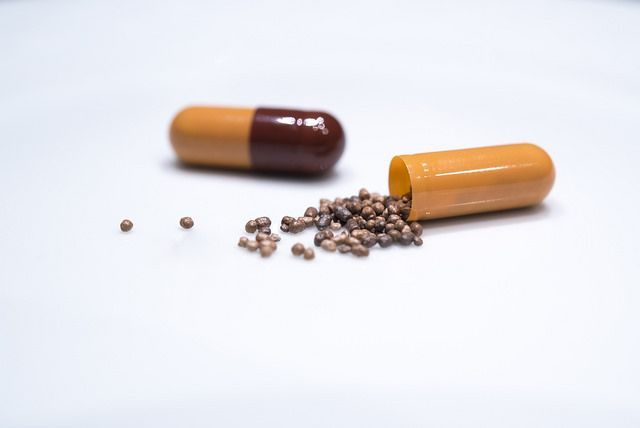Fecal Transplant: Freeze-Dried Poop Capsules May Help Fight Obesity By Changing Your Gut Microbiota

Fecal transplants are not as disgusting as one might imagine they’d be — they actually involve taking pills filled with freeze-dried fecal matter. Taking these pills can help change the communty of organisms living inside the gut, known as a microbiome, and subsequently help fight infections. Research has also shown giving fecal transplants from obese patients to slim patients could help them gain weight. But is the opposite true?
Dr. Elaine Yu, an assistant professor and clinical researcher at Massachusetts General Hospital, hopes so. In a clinical trial, she’s giving 20 obese patients the pills, filled with fecal matter from healthy-weight individuals in order to see how their microbiomes change. “We have no idea what the result will be,” Yu told Ars Technica. But if all goes as planned, the fecal transplants will change not only the patients weights, but also their lean and fat body mass as well as insulin sensitivity — a major contributor to obesity.
Over the course of 12 weeks, half of the patients will receive a dose of the freeze-dried poop, with the others receiving a placebo pill. The researchers will monitor their progress over the next year, or beyond, depending on how successful their trial is. And the patients will not be on any restrictive diet; they’re expected to continue their current exercise and dietary habits. Fecal samples will also be collected to study the microbiomes of each patient.
Though fecal transplants have been used to alter gut microbiomes before, The New York Times reports the real challenge behind the process was creating suitable capsules for the fecal matter. This is where nonprofit company OpenBiome stepped in and created a capsule that can dissolve in the small intestine, while remaining solid in room temperature. This is important because feces typically dissolves in capsules.
The microbiome consists of trillions of microorganisms and can weigh over 4 pounds. Up to two-thirds of a person’s microbiota is unique to their own bodies, meaning an obese person’s microbiome has a completely different composition than a lean person’s. The microbiome is mostly found in the intestines, where it helps the immune system fight off infections, helps the digestive system handle the food we eat, and produces vitamins B and K. As we grow up, so does our microbiome — babies, who are sterile within the uterus, immediately begin developing their own microbiomes from the air they breathe and the food they eat once they’re birthed.
Right now, Yu and her team hope to find another way to combat obesity. If their trial proves successful, Yu told Ars Technica that the team would be able to do all of the detail-oriented work in order to determine which microbial communities are affected — this would in turn provide the information for more targeted treatments in the gut.



























